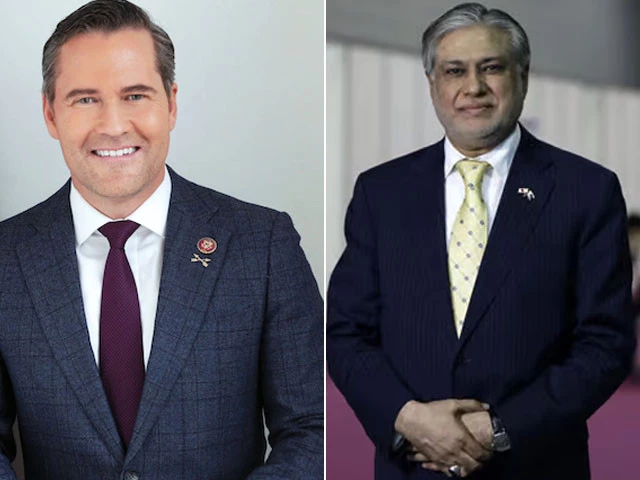Islamabad:
Foreign Minister Ishaq Dar and US Secretary of State Marco Rubio should organize talks in Washington on Friday, the Ministry of Foreign Affairs said, saying that bilateral, regional and international issues as well as the India-Pakistan relationship is said to be the head of the agenda.
“I can confirm that the meeting is scheduled for tomorrow, and the whole range of problems on the bilateral agenda, as well as important regional and global problems, including the situation in the Middle East, and Iran will be discussed,” said Shafqat Ali Khan Thursday at the weekly briefing.
“The exchange of views will also take place on the question of Pakistan-India, for which we remain grateful for the role played by the United States in the de-escalation of tensions leading to the cease-fire,” he added.
The meeting between Dar and Rubio is one of the renewed efforts of both parties to revive the structured dialogue between Pakistan and the United States. Biden administration completely ignored Pakistan and there had been no contacts or few contacts at the level of foreign ministers.
However, unlike expectations, the bilateral links between Pakistan and the United States have seen a positive turnaround since President Donald Trump began his second term.
Pakistan’s cooperation to stop one of Abbey Gate Bombing’s brains in Kabul in August 2021 led to rapprochement. President Trump in his first speech praised the efforts to combat Pakistan terrorism.
What brought the two countries together was the India-Pakistan conflict in May following the attack on Pahalgam. While Pakistan has recognized the positive role of the Trump administration in the cease-fire brokerage, India continued to challenge American claims.
Pakistan to make new breakthroughs in the White House to President Trump for the Nobel Peace Prize for his courageous efforts of leadership and peace in the subcontinent.
With regard to reports on American-Pakistani dialogue, including discussion on Jammu-et-Cachemire and the Indus Water Treaty (IWT), the spokesperson confirmed that these questions remain at the heart of the diplomatic agenda in Pakistan and should be raised at the meeting of the DPM / FM with the US Secretary of State Rubio.
Asked about President Trump’s recent remarks on credit for defusing an almost nuclear crisis in South Asia, Khan said: “We have repeatedly recognized the role of friendly nations, including the United States. The facts of this crisis are well known.”
When asked, the Foreign Office spokesman said Pakistan is committed with all countries in good faith and would continue to invite India to come to the negotiating table and to evolve towards a peaceful settlement of disputes.
“But the key question is that India decides on the type of policy it wishes to adopt. Regarding Pakistan, our position is very clear. We have, several times, recognized and thanked the American intervention and the role it played in the de -escalation of the recent crisis,” said Shafqat.
“But again, it is up to India to decide the route it wants to take, the policy it wants to adopt. Diplomatic commitment is not a favor extended by one country to another; it is in the common interest of both countries and regional stability and world peace,” he added.
Meanwhile, the spokesperson described the recent visit to the Minister of the Interior Mohin Naqvi in Afghanistan as “very successful”, saying that she reflected constant positive impetus in bilateral relations.
Shafqat said that the visit should be seen in the broader context of improving links, citing the visit of the Deputy Prime Minister and the Minister of Foreign Affairs in Kabul on April 19, 2025, as a “moment in the watershed”.
“There is a regular positive dynamic in interactions, and the quality of relations has improved considerably. The two parties are trying to consolidate diplomatic gains more, by maintaining and accelerating this positive dynamic,” said Khan.
The spokesperson stressed that the agenda of the Ministry of the Interior focused mainly on security and the fight against terrorism – questions that remain a key element of discussions between the two neighbors.
“We have repeatedly reiterated the type of relations we want with Afghanistan. However, one of the stumbling block stones is the sanctuaries from which the terrorists benefit,” noted the spokesperson.
He added that Pakistan had his concerns express to Kabul, and the Afghan side showed “receptivity” to these questions. “Technical discussions are underway. I cannot go into details, but in political terms, the visit was very successful,” said Khan.
Stressing the broader context of links, the Ministry of Foreign Affairs argued that cooperation in the security sector must be considered as part of the overall positivity and the improvement of relations between the two “fraternal neighboring countries”.




